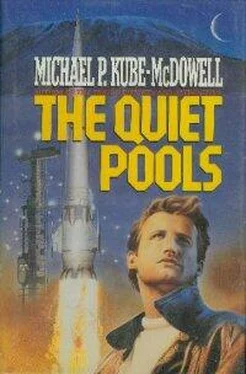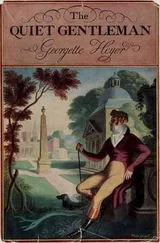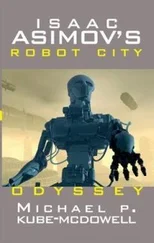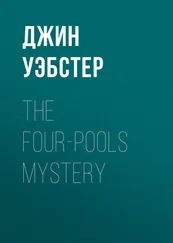Work proved no amulet, anger no talisman. The wraith shadowed him all through the afternoon and into that early winter night, fragments of the session playing tag-gotcha ! in his head until half a flask of Loi’s Glenfiddich finally silenced what lies and bluster could not.
CHAPTER 18
—GCA—
“There is only one history…”
It was ten days until the end of ground training, and excitement was building in the village at AT-Houston. It was obvious to Thomas Tidwell, still sharing a house with three Memphis colonists. But it seemed to him that even a casual visitor to the compound could not fail to notice, would see it in the self-delighted smiles, the surreptitious winks and thumb-in-fist salutes.
Soon , the winks and smiles and salutes said, soon .
Soon the staff would scatter across the globe and throughout the orbiting worlds on a last sojourn home, for a final farewell to family and familiar. Even though the sailing date was still three months away, it seemed to Tidwell that the whole planet must soon echo with the ache of the tearing away, that the pain of those good-byes would surely more than cancel the giddy pleasure he was seeing on the faces of the villagers. But if that were so, he was the only one who saw it. When Evans or Colas said, “Ten more days,” it was said with potent anticipation, as a promise and a bond between the elect.
The selection sociometricians had explained their strategy to Tidwell in effusive detail—how the ground training had less to do with technology than with psychology, with forging emotional links through shared homes, shared labors, shared goals. The demanding schedule only intensified the effect, an old workshop leader’s trick carried off on a much greater scale. The colonists would part on the last day saying, “See you on the ship.” and that vow would help assure that most would keep the appointment.
Ten more days, they said. Ten more days until tomorrow begins. Ten more days until we can finally close the old book, open a new one.
And for Tidwell, ten more days until he could return to Half-whistle, the episode over, his mission concluded, though far from complete. Evans and Colas and Graham, reunited on Memphis , would count him as one who had faltered, who surrendered the dream in exchange for a tamer security—if they noted his absence at all.
No, he thought, they would not question it, or even be surprised. They had to know, just as he had come to know, living with them, that he was not one of them, one with them. They had to sense that he was deaf to whatever music pounded in their blood. There had been no lapse in civility, no attempt to exclude him. But they had to wonder why he was struggling, wonder if in his case Selection had made a mistake.
Tidwell would have thought they would shy from him, fearing that their own certainty would be contaminated by doubt. Instead, they had wrapped him in a gentle cocoon of silent sympathy and support, and went right on.
From within that cocoon, he watched them. He saw their naive energy and marveled as a parent marvels at the boundless energy of a child. He saw that they were helpless in the grip of their own dimly apprehended need, and happy being so. That selection counselor, Keith, had been right. Everything Tidwell had learned in his brief career as Thomas Grimes he learned that first day, except that he had rejected the wisdom.
They burned. He did not.
With each day, that gulf seemed wider, his estrangement from their passion more complete. They were leaving. He would stay. And in recent days it had become more important to consider what that meant to him than what it meant to them. New questions intruded on his thoughts: What becomes of the nest when the children have flown? What sort of world would the last of Allied Transcon’s starships be leaving behind? How much energy of will, how much love of life, could five ships, a mere sixty thousand people, carry away with them?
For the first time, Tidwell wondered darkly if those who remained would have enough dreams to sustain them.
These were thoughts which would not have seemed out of place in a tirade by the mythical Jeremiah, and Tidwell was discomfited by hearing them rattle, homeless and unclaimed, around his own skull. He had gotten too close; the charade had gone on too long. He had lost perspective, lost the surety of his own judgment. It was past time to withdraw, to regain the balance, to become the observer, to begin the synthesis.
And still not yet time. Ten more days.
Lying wide awake in his darkened room, the thinnest of sheets covering his nakedness in the clammy warmth, Tidwell stared ceilingward and tried to make sense of his day. I no longer know what questions to ask , he thought. I no longer know what matters .
Point: his interview that morning with Carl Miller, the University of Texas systemist whose theory of “bioeconomics” had caused such a flap in the popular media since October. The most common spin on Miller’s work was that it offered the first authoritative scientific support for Jeremiah’s claim that Allied Transcon was “bleeding” the earth.
Tidwell had put Miller on his schedule merely to fill time, to occupy a block when “Thomas Grimes” was scheduled for meaningless proficiency examinations. But Tidwell was unable to put away what Miller had to say, unable to render it meaningless with logic or counterargument.
“I’m not a Homeworlder, Dr. Tidwell,” Miller kept repeating. “I’m as excited about the Diaspora as anyone—I even subscribe to the Ur journal, Frontier . All I’ve done in my paper is analyze some of the issues in macroeconomic terms. And I think I’ve demonstrated that this is, in fact, a one-sided transaction, building and outfitting these starships. In fact, I think that it’s time to revive the notion of the altruistic act.”
“On whose part?”
“On the part of the entire species,” said Miller. “I’ve heard Sasaki claiming that Allied has paid its own way on this. But that balance sheet is missing a lot of entries. If Sasaki wants to amortize the cost of the Project against the entire future of the colonial units, that’s fine. But what about the knowledge that these ships carry? What about the technical expertise required to build them? That’s an unvalued transaction. The cumulative cost of that intellectual capital is by far the single largest cost item on the ledger.”
“Come now,” Tidwell said dismissively, “that ‘capital’ can be spent a thousand times over and never exhausted. It goes on Memphis’s ledger as a gift of great value and no cost. Every bit of knowledge that went into its conception and construction remains available to this community—perhaps even more available, considering the effort which we’ve put into collecting and organizing it. You’re grandstanding, sir, with meaningless hypotheticals.”
“I understand your defensiveness,” Miller said. “I can’t say it often enough—I’m with you, not against you. But where does intellectual capital come from? It’s the product of an even more precious emotional capital. And emotional capital can be spent, because one of the multipliers is time. Is spent, every day, as we choose what to do with our opportunities. With our lives.”
“You are inventing realities again.”
“Are you familiar with CFS, Mr. Tidwell?”
“CFS?”
“Chronic Fatigue Syndrome,” said Miller. “It’s a useful one-organism model for bioeconomics. CFS victims are achievers, ambitious, inventive. And then they reach a point where they can’t keep the pace they’ve set for themselves. They’re weary. They sleep too much. They’re always sick, little nagging draining kinds of illnesses. The ambition vanishes. In short, they just don’t care anymore. It happens to individuals. It happens to communities. It happens to civilizations. I think it’s happening to us.”
Читать дальше

![Nick Cracknell - The Quiet Apocalypse [= Island Zero]](/books/28041/nick-cracknell-the-quiet-apocalypse-island-zero-thumb.webp)










